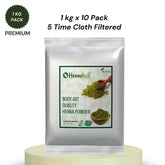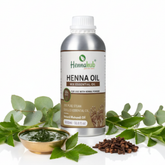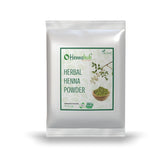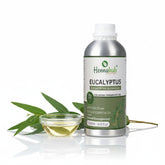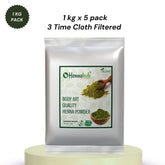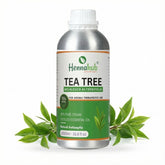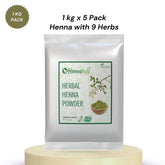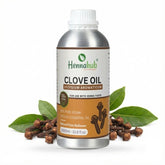Unlocking the Beauty Secrets of Henna Powder: Pros and Cons
Unlocking the Beauty Secrets of Henna Powder: Pros and Cons
In the realm of natural beauty remedies, henna powder stands out as a timeless favorite. Derived from the leaves of the henna plant, this versatile substance has been utilized for centuries to adorn the skin with intricate designs, as well as to nourish and strengthen hair. However, like any other product, henna powder comes with its own set of advantages and disadvantages. In this blog post, we'll delve into the pros and cons of henna powder, shedding light on its various facets.

Pros of Henna Powder:
Natural Hair Nourishment: Henna powder serves as an excellent natural alternative to chemical hair dyes. It not only imparts a rich, reddish-brown hue to the hair but also nourishes and strengthens it from within. Regular use of henna powder can lead to healthier, more vibrant locks without the harmful effects associated with synthetic dyes.
Safe for Most Hair Types: Unlike chemical hair dyes that may cause adverse reactions in sensitive individuals, henna powder is generally safe for all hair types, including those prone to allergies. Its natural composition makes it a preferred choice for individuals seeking a gentler approach to hair coloring and treatment.
Skin-Friendly Tattooing: One of the oldest uses of henna powder is for creating intricate designs on the skin, known as mehndi or henna tattoos. Unlike permanent tattoos, henna tattoos are temporary and gradually fade away, making them a popular choice for those who wish to experiment with body art without the lifelong commitment.
Moreover, henna powder is known for its skin-friendly properties, as it not only beautifies but also nourishes the skin, leaving behind a subtle fragrance. This makes it an ideal choice for individuals with sensitive skin or those looking to avoid the harsh chemicals often found in traditional cosmetics.
Cons of Henna Powder:
Limited Color Range: While henna powder is renowned for its rich reddish-brown hue, its color range is relatively limited compared to synthetic hair dyes. Individuals seeking a broader spectrum of colors may find henna's options somewhat restrictive.
Time-Consuming Application: Applying henna powder to the hair or skin can be a time-consuming process, requiring several hours for the color to develop fully. This may not be suitable for individuals with busy schedules or those seeking quick results.
Potential for Staining: Although henna powder is generally safe for use, it has the potential to stain fabrics and surfaces. Care must be taken during application to avoid spills and drips, and protective measures should be implemented to prevent unintended staining.

Furthermore, some individuals may experience allergic reactions to henna powder, particularly if they have sensitivities to botanical substances. It's essential to perform a patch test before using henna powder extensively to ensure compatibility with your skin and hair.
Conclusion: In conclusion, henna powder offers a myriad of benefits as a natural hair dye and skin adornment. Its nourishing properties, coupled with its versatility, make it a valuable addition to any beauty routine. However, it's essential to weigh the pros and cons carefully before incorporating henna powder into your regimen. Whether you're looking to enhance your hair's natural beauty or explore the world of temporary body art, henna powder has much to offer for the discerning beauty enthusiast.
To explore a wide range of henna powder products and learn more about its uses, visit HeenaStore.com.
By considering these factors, you can make an informed decision about whether henna powder is the right choice for you.

